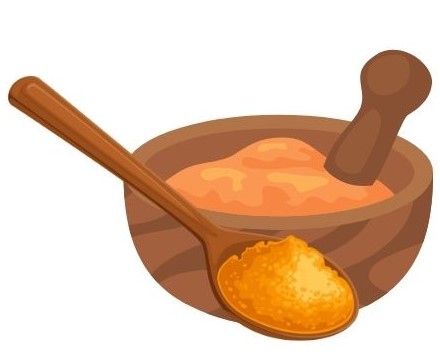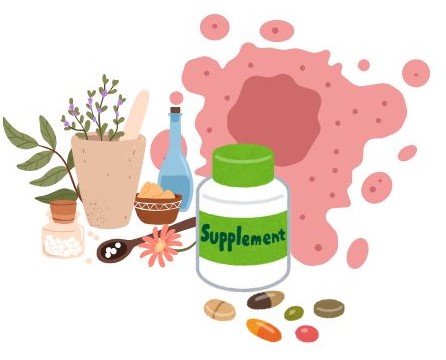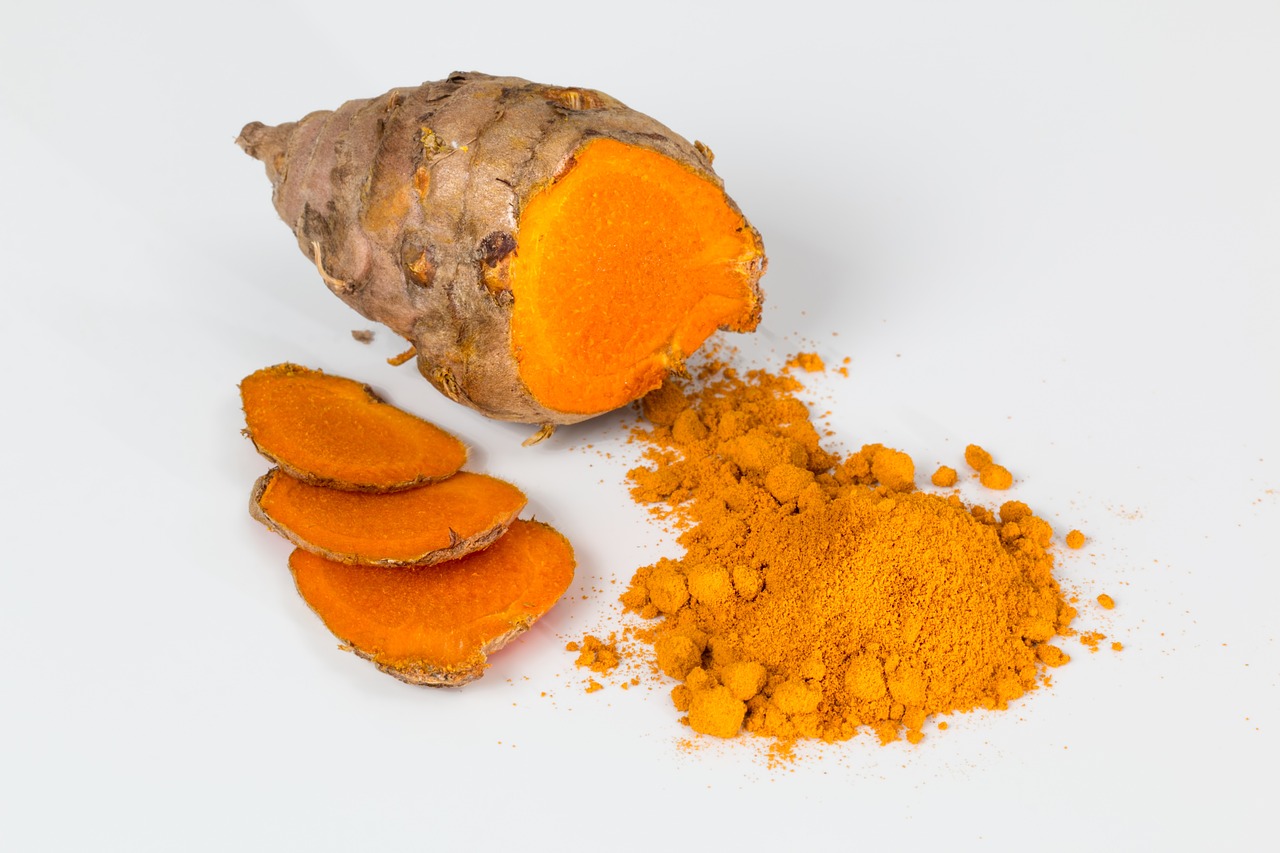Curcumin, the active compound found in turmeric (Curcuma longa), has gained significant attention in recent years for its numerous health benefits. This vibrant yellow polyphenol is known for its powerful anti-inflammatory, antioxidant, and therapeutic properties. This article explores the benefits of curcumin, its mechanisms of action, potential uses, and safety considerations.
What is Curcumin?
Curcumin is a natural polyphenol and the primary active ingredient in turmeric, a spice commonly used in South Asian cuisine and traditional medicine. While turmeric contains about 2-5% curcumin by weight, it is the concentration of curcumin that contributes to many of turmeric’s health benefits. Curcumin is often extracted and used in supplement form due to its low bioavailability when consumed as part of whole turmeric.
The Difference between Curcumin and Turmeric
Turmeric and curcumin are often mentioned together, but they refer to different substances. Here’s a breakdown of their differences:
Turmeric
- Definition: Turmeric is a spice made from the rhizome (root) of the Curcuma longa plant. It is commonly used in cooking, particularly in South Asian cuisine, and is known for its bright yellow color.
- Composition: Turmeric contains several bioactive compounds, with curcumin being the most prominent. Other compounds include demethoxycurcumin and bisdemethoxycurcumin, among others.
- Uses: Turmeric is used both as a spice and for its potential health benefits. It has a long history in traditional medicine, particularly in Ayurveda, for its anti-inflammatory and antioxidant properties.
- Bioavailability: Turmeric contains about 2-5% curcumin by weight. However, it is often consumed in small amounts in food, which may not provide significant health benefits compared to concentrated curcumin supplements.
Curcumin
- Definition: Curcumin is the primary active compound found in turmeric. It is responsible for many of the health benefits attributed to turmeric.
- Purity: Curcumin is a specific chemical compound, often extracted from turmeric for use in supplements. It is usually available in a concentrated form, providing a higher dose than turmeric powder alone.
- Health Benefits: Curcumin is known for its potent anti-inflammatory, antioxidant, and potential anti-cancer properties. Research studies often focus on curcumin due to its specific biological activities.
- Absorption: Curcumin has low bioavailability, meaning it is not easily absorbed by the body. To enhance absorption, it is often combined with piperine (found in black pepper) in supplements.
while turmeric and curcumin are related, they serve different purposes, with curcumin being the key active component that provides most of the health benefits associated with turmeric.
Key Health Benefits of Curcumin
1. Anti-Inflammatory Properties
- Mechanism: Curcumin inhibits several molecular pathways involved in inflammation, including the inhibition of nuclear factor kappa B (NF-kB) and the suppression of pro-inflammatory cytokines.
- Applications: Its anti-inflammatory effects may help manage chronic inflammatory conditions such as arthritis, inflammatory bowel disease, and psoriasis.
2. Antioxidant Effects
- Function: Curcumin acts as a potent antioxidant, neutralizing free radicals and reducing oxidative stress in the body.
- Benefits: By reducing oxidative damage, curcumin may lower the risk of chronic diseases such as cancer, cardiovascular disease, and neurodegenerative disorders.
3. Heart Health
- Impact: Curcumin may improve heart health by enhancing endothelial function and reducing inflammation and oxidative stress.
- Research: Studies have shown that curcumin supplementation can lower cholesterol levels and improve overall cardiovascular health.
4. Cognitive Function and Neuroprotection
- Mechanism: Curcumin has been found to increase levels of brain-derived neurotrophic factor (BDNF), a protein linked to improved brain health and cognitive function.
- Potential Benefits: It may reduce the risk of neurodegenerative diseases such as Alzheimer’s by protecting against neuronal damage and inflammation.
5. Pain Relief
- Effectiveness: Curcumin has been shown to alleviate pain associated with conditions like osteoarthritis and rheumatoid arthritis, potentially providing relief comparable to non-steroidal anti-inflammatory drugs (NSAIDs).
- Applications: It may also help with muscle soreness and postoperative pain.
6. Digestive Health
- Benefits: Curcumin can stimulate bile production, enhancing fat digestion and supporting overall digestive health.
- Conditions: It may be beneficial for managing digestive disorders such as irritable bowel syndrome (IBS) and inflammatory bowel disease (IBD).
7. Immune System Support
- Immune Modulation: Curcumin may enhance immune function and help the body fight infections.
- Antimicrobial Properties: Preliminary studies suggest curcumin has antibacterial and antiviral properties, which could support immune health.
8. Cancer Prevention and Treatment
- Research: Studies indicate that curcumin may inhibit the growth of cancer cells and prevent metastasis (the spread of cancer to other parts of the body).
- Mechanisms: It appears to interfere with several cellular signaling pathways involved in cancer progression and may enhance the effectiveness of certain cancer treatments.
9. Skin Health
- Applications: Curcumin’s anti-inflammatory and antioxidant properties can help manage skin conditions such as acne, eczema, and psoriasis.
- Topical Use: Curcumin can be found in various skincare products, providing benefits for skin health and appearance.
10. Mood Enhancement
- Impact on Mood: Some studies suggest that curcumin may have antidepressant effects, potentially helping to alleviate symptoms of depression and anxiety.
- Mechanism: It may influence neurotransmitter systems, including serotonin and dopamine, contributing to improved mood and emotional well-being.
How to Incorporate Curcumin into Your Diet
Incorporating curcumin into your diet can be both enjoyable and beneficial for your health. Here are several ways to add curcumin, primarily through turmeric, into your meals and routines:
1. Culinary Uses
A. Cooking with Turmeric:
- Curries and Soups: Turmeric is a staple in many curry recipes. Add it to lentil soups, vegetable curries, or stews for flavor and color.
- Rice Dishes: Stir a teaspoon of turmeric into cooking water for rice or grains like quinoa and couscous to give them a vibrant hue and added health benefits.
- Smoothies: Blend turmeric powder into your smoothies. It pairs well with tropical fruits like pineapple and mango, as well as greens like spinach and kale.
B. Golden Milk (Turmeric Latte):
- Recipe: Combine 1 cup of milk (dairy or plant-based), 1 teaspoon of turmeric powder, a pinch of black pepper (to enhance absorption), and a sweetener like honey or maple syrup. Optionally, add cinnamon or ginger for extra flavor.
- Preparation: Heat the mixture in a saucepan, whisking until smooth. This warming drink can be enjoyed at any time of the day.
C. Salad Dressings:
- Turmeric Vinaigrette: Whisk together olive oil, apple cider vinegar, a teaspoon of turmeric, honey, salt, and pepper for a vibrant salad dressing.
2. Supplements
A. Curcumin Capsules:
- Dosage: Curcumin supplements are available in various dosages, typically ranging from 500 mg to 2,000 mg per day. It’s advisable to follow the dosage recommendations on the label or consult a healthcare provider.
B. Enhanced Absorption:
- Piperine: Look for curcumin supplements that include piperine (from black pepper), which can enhance the bioavailability of curcumin significantly.
3. Baking and Cooking Enhancements
A. Turmeric in Baked Goods:
- Muffins and Pancakes: Add a teaspoon of turmeric to muffin or pancake batter for added nutrition and color.
B. Roasted Vegetables:
- Seasoning: Toss vegetables (like cauliflower, carrots, or sweet potatoes) with olive oil, turmeric, salt, and pepper before roasting for a flavorful side dish.
4. Herbal Teas
A. Turmeric Tea:
- Preparation: Boil water and add 1 teaspoon of turmeric powder, a slice of fresh ginger, and lemon juice. Strain and enjoy. This can be a soothing drink, especially when you have a cold.
5. Combining with Other Spices
A. Spice Blends:
- Garam Masala: Incorporate turmeric into spice blends like garam masala to enhance the flavor of your dishes.
- Curry Powder: Use curry powder, which typically contains turmeric, in various recipes for added benefits.
6. Daily Habit
A. Mindful Incorporation:
- Routine: Make it a habit to include turmeric or curcumin in at least one meal daily. Whether it’s in a morning smoothie, lunch salad, or dinner curry, consistency is key.
7. Considerations
- Consultation: If you have underlying health conditions or are taking medications (especially blood thinners), consult your healthcare provider before starting curcumin supplements.
- Moderation: While curcumin has numerous benefits, it’s best consumed in moderation as part of a balanced diet.
Incorporating curcumin into your diet can enhance both flavor and health. Whether through cooking, supplements, or drinks, there are many ways to enjoy the benefits of this powerful compound. Regular consumption, alongside a healthy lifestyle, can contribute to improved overall wellness.
Potential Side Effects and Precautions
While curcumin is generally considered safe, excessive consumption can lead to side effects, including:
- Digestive Issues: High doses may cause gastrointestinal discomfort, nausea, or diarrhea.
- Blood Thinning: Curcumin may have anticoagulant effects; individuals on blood-thinning medications should exercise caution.
- Allergic Reactions: Some people may experience allergic reactions to curcumin or turmeric.
- Pregnancy and Breastfeeding: High doses of curcumin supplements are not recommended during pregnancy or breastfeeding.

Curcumin is a powerful compound with a wide array of health benefits, from anti-inflammatory and antioxidant properties to potential cancer-fighting abilities. Incorporating curcumin into your diet, whether through food or supplements, can contribute to improved health and well-being. However, it’s essential to consult with a healthcare professional before making significant changes to your health regimen, particularly if you have existing health conditions or are taking medications. With proper use, curcumin can be a valuable addition to a healthy lifestyle.







